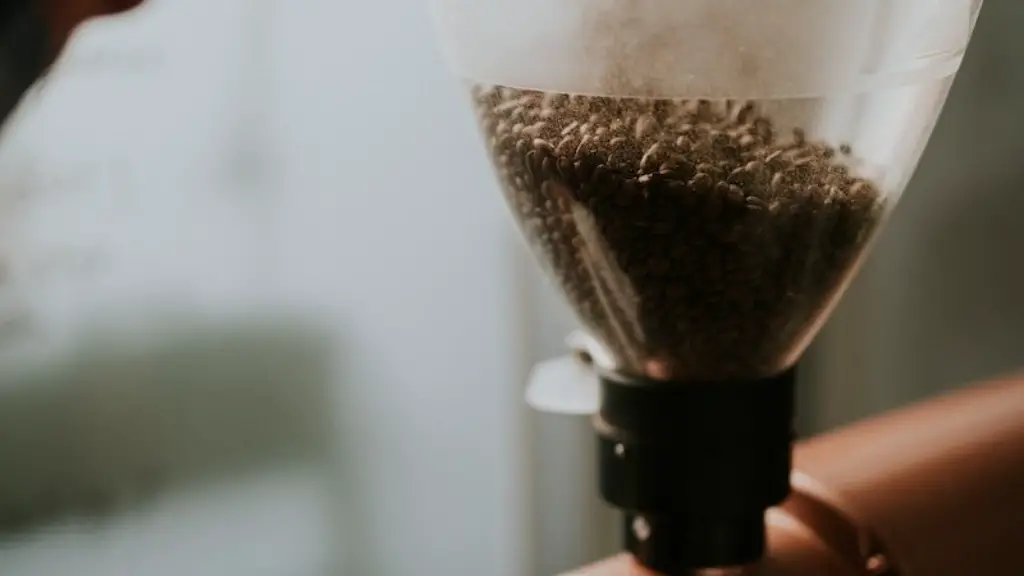Are you drinking too much coffee? While coffee may be one of the most popular drinks in the world, its over-consumption has been shown to lead to a variety of health problems. From heart disease and depression to diabetes and obesity, coffee is more than just a basic beverage; it’s a potential risk factor you need to be aware of. In this article, we’ll look at some of the reasons why you should not drink coffee and why it’s important to make sure you’re conscious of your own coffee consumption.
Tolerance And Rebound Effects
Caffeine affects us in several different ways. It is a stimulant, so when you consume it, it can give you a temporary boost in energy, focus and alertness. The problem is that people can become tolerant to the effects of caffeine, resulting in them needing to drink more and more to sustain their desired level of energy. This can lead to what’s known as caffeine dependence or caffeine addiction.
Caffeine also has rebound effects. When people suddenly stop drinking coffee, they may experience headaches and fatigue, as their bodies adjust to the lack of caffeine in their system.
Potential Negative Effects On Health
Coffee is often touted as being a healthy drink, but the truth is, it is not without its potential risks. Studies have shown that those who regularly drink high amounts of coffee are more likely to suffer from heartburn and digestive issues. There is also evidence to suggest that coffee can increase the risk of developing type 2 diabetes, as well as other chronic illnesses such as cancer, stroke, and heart disease.
Coffee also contains a variety of chemicals that can be harmful to health. Caffeine can interfere with the absorption of vitamins and minerals and can also lead to insomnia and anxiety. Coffee also contains a compound called acrylamide, which has been linked to an increased risk of cancer.
Risks Of Pregnant Women Drinking Coffee
Coffee should be avoided during pregnancy as it can have a detrimental effect on a fetus’s development. Studies have shown that drinking excessive amounts of coffee can harm fetal brain development and increase the risk of miscarriage or premature birth. Caffeine consumption during pregnancy has also been linked to an increased risk of Sudden Infant Death Syndrome (SIDS).
Coffee And Anxiety
Coffee is often seen as a way of helping you to stay alert and focused, but too much of it can actually have the opposite effect. Caffeine stimulates the sympathetic nervous system, leading to an increase in stress hormones such as cortisol and adrenaline. This can result in anxiety, jitteriness and restlessness. People who consume too much coffee can also experience an increase in heart rate and blood pressure.
Lack Of Nutrition
Coffee is a calorie-free beverage, but it is also low in essential nutrients. While it can provide you with a short-term energy boost, coffee is not a nutrient-dense food and fails to provide your body with the essential vitamins and minerals it needs to stay healthy. If you’re looking to maintain your health, it’s important to get your nutrients from whole and unprocessed foods.
Alternatives To Coffee
If you’re looking for something to give you an energy boost, there are plenty of caffeine-free alternatives to coffee that can provide you with a more sustained level of energy. Herbal teas, sparkling water and fresh juices are a great way to get some natural energy, without having to consume any caffeine.
The Bottom Line
Coffee can be a part of a healthy lifestyle, but it should not be over-consumed. High amounts of coffee can have a variety of negative health effects and increase the risk of developing certain chronic illnesses. Pregnant women should avoid drinking coffee altogether, as it can have a detrimental effect on the baby’s development. For those looking for an energy boost, there are plenty of caffeine-free alternatives that provide the same benefits without any of the risk.
Long-Term Health Complications
Studies have shown that drinking large amounts of coffee can actually lead to long-term health complications. Researchers have observed that people who drink more than four cups of coffee a day are more likely to suffer from high blood pressure and heart disease. Excessive coffee consumption can also lead to liver damage and an increased risk of stroke.
Effects On The Brain
Coffee can have an effect on the brain and how it functions. High levels of caffeine can lead to anxiety and restlessness, as well as impairing judgement and memory. Regular coffee consumption has also been linked to an increased risk of developing depression and dementia.
Impact On Sleep
Caffeine is a stimulant and can have a negative effect on sleep. Consuming coffee close to bedtime can lead to difficulty falling asleep and staying asleep, as the stimulant prevents the body and mind from unwinding and calming down. Those who consume too much coffee often find it hard to switch off and relax, resulting in disrupted sleep and daytime fatigue.
Contributes To Poor Diet Quality
Coffee is often consumed as an accompaniment to unhealthy food, such as doughnuts and pastries. By drinking coffee and not focusing on eating a healthy and balanced diet, people can be missing out on key vitamins and minerals, as well as other dietary requirements that are essential for good health.
Negative Impact On Oral Health
Coffee is known to stain the teeth, as well as contributing to the erosion of enamel. Coffee can also irritate the gums and increase the risk of gum disease. Drinking too much coffee can also lead to an increased risk of cavities and tooth decay.
As you can see, there are many potential risks to drinking coffee. While it can provide a short-term boost in energy, drinking coffee regularly can lead to a variety of unwanted health complications. It’s important to be aware of how much coffee you’re drinking and to endeavour to keep your consumption to a minimum.



